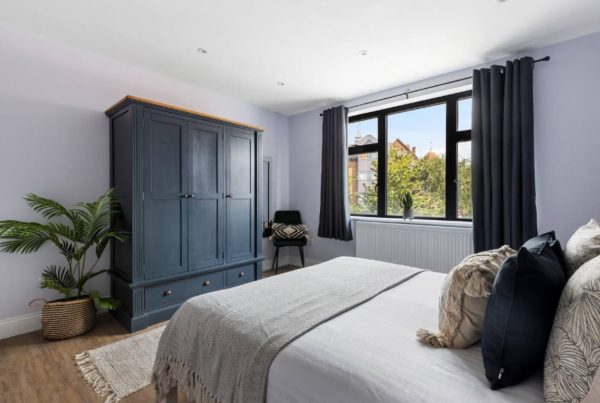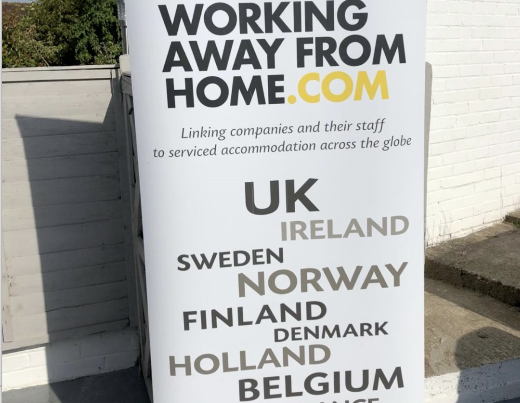Business travellers face many choices when they take a trip, and one of them is what kind of accommodation to book. Gone are the days when a hotel was the only option. In recent years serviced accommodation has been performing better than other accommodation sectors and has continued to bounce back since the industry was hit by the pandemic.
Customer preferences for a ‘home-from-home’ experience have grown and serviced apartments are fitting that requirement perfectly. Even more so since the pandemic, the ease at which guests can socially distance themselves from others and benefits such as the high standards of cleanliness and safety, should cement serviced accommodation as a mainstream option for business travellers.
What is a Serviced Apartment?
A serviced apartment is a fully furnished property available for short or long-term stays. There are a few differences between serviced apartments and hotels;
1. Space
Hotel rooms can be quite small. Large suites may be available, but they come at a premium. A serviced apartment, on the other hand, is a normal sized studio, one, two or three-bedroom apartment, on average offering 30-50% more space than a typical hotel room.
2. Kitchen availability
It isn’t common for a hotel room to include a kitchen. Hotels that offer ‘kitchenettes’ don’t always come fully equipped with the essential cooking facilities and are normally quite basic, and small. A serviced apartment will include a full sized, fully equipped kitchen, enabling you to prepare homemade meals and store food and drink. You can save money on eating out too!
3. Furniture and equipment
Many hotel rooms provide little more than a bed and a bathroom. Serviced apartments are fully furnished and equipped with all the typical furniture you’d find in a home. Everything from pots and pans to televisions. Many serviced apartments will also have a washing machine and dryer so you don’t have to worry about visiting a laundrette.
4. Cost differences
From a cost perspective 30 nights in a hotel would be a lot more expensive vs 30 nights in a serviced apartment especially if there is more than 1 person travelling. Most of the time we deal with clients requiring accommodation for several people at any one time, if there was 3 guys needing accommodation for example, a 3 bedroom apartment vs 3 separate hotel rooms would be much more cost effective as well as offering all the comforts and necessities of home. On average, serviced apartment rates are 30-50% less than typical hotels.
5. Amenities
The amenities provided at hotels and serviced apartments can vary. Hotel amenities may include room service, an on-site restaurant or a spa. However, depending on the building, serviced apartments may come with amenities like a fitness centre, roof terrace, and WiFi is always included in the cost of a serviced apartment, while many hotels still charge extra for it. Also, TV’s tend to be quite standard in hotels with limited channels, in apartments it isn’t uncommon to have TV’s within the main living area and the bedrooms as well as Netflix and other popular streaming services available and included in the price.
6. Locations
Hotels are usually located in centralised and convenient areas, in and around cities and towns or near airports, while serviced apartments can be located in nearly any residential area including remote areas too. We have secured many properties for our clients in rural areas where project locations are normally situated, away from the major cities and towns.
From studio apartments to larger properties, WorkingAwayFromHome.com will proactively source accommodation options for any requirement. Please contact us today to find out more about what we have to offer and our wrapped monthly solution. Saving companies TIME, reducing COST and minimising RISK when booking accommodation.



